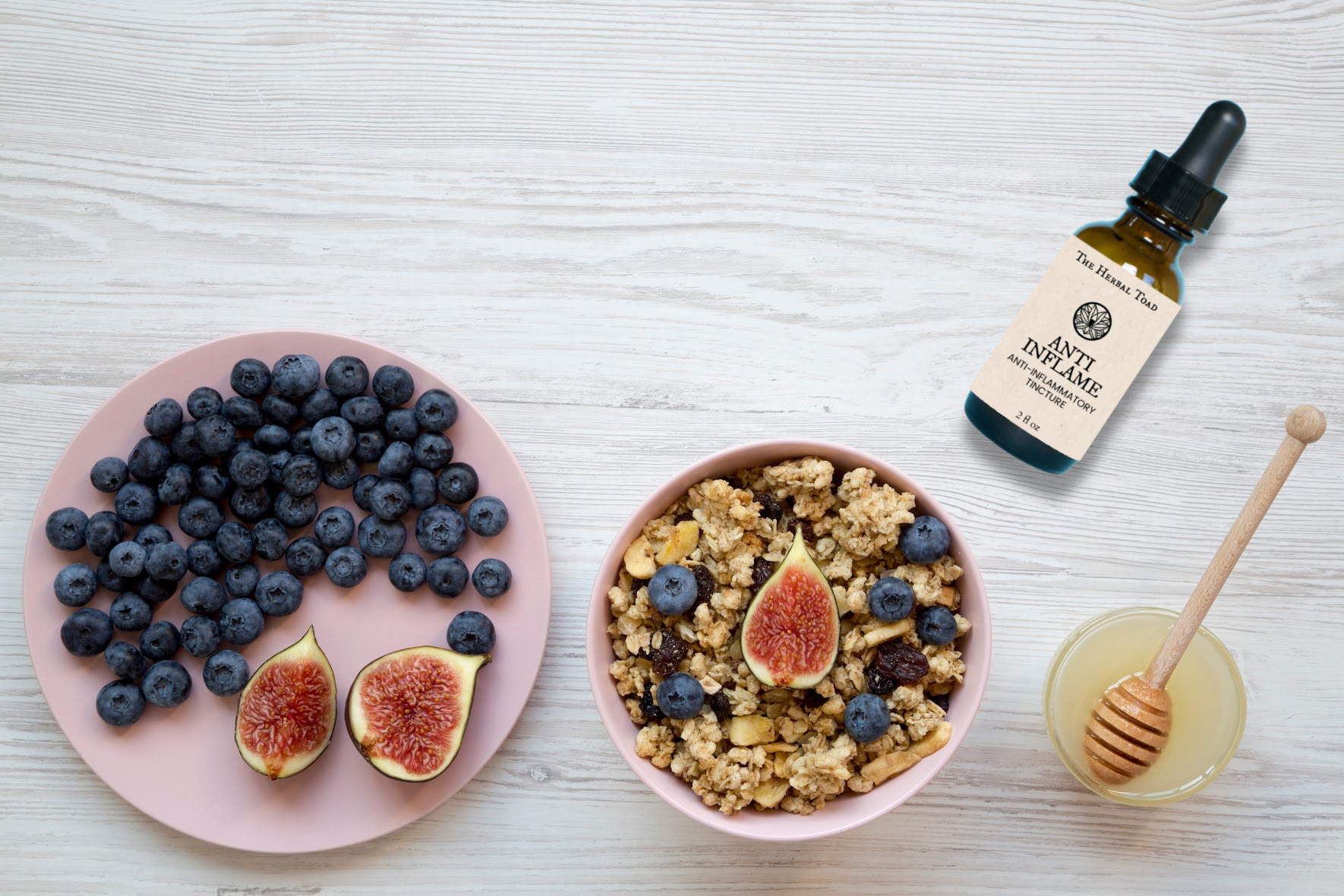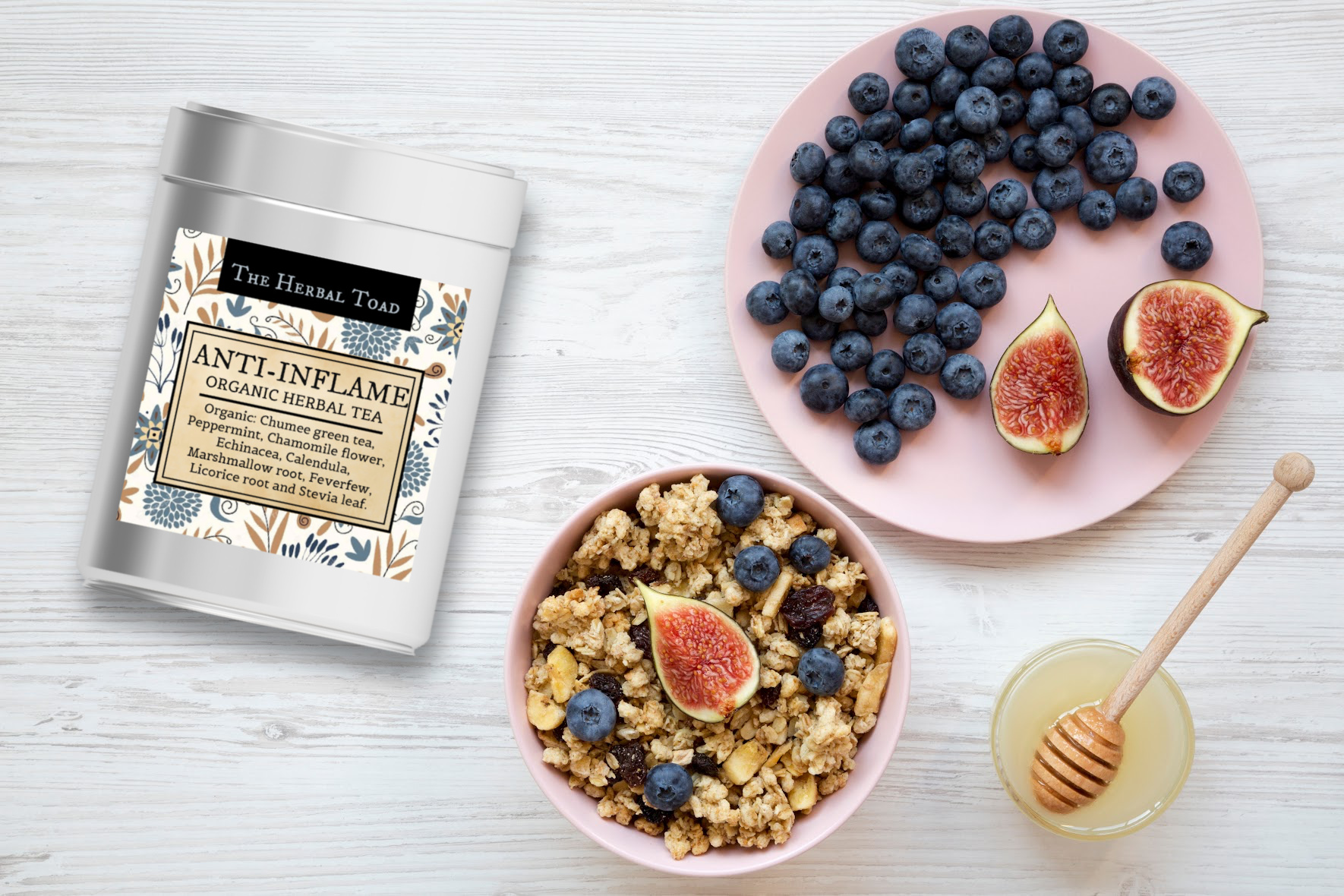Foods That Can Help With Inflammation
If you are a regular here, you know how passionate I am about incorporating into your diet foods that help fight inflammation. Having a healthy inflammatory response is key to a number of health concerns. Our 'Fight Inflammation Series highlights the lifestyle elements that I believe make or break a healthy inflammatory response.
Inflammation is a natural process that protects our bodies and allows for healing. Normal, healthful inflammation occurs immediately after an injury. The area gets red and swollen and typically hurts for a few days. Inflammation is problematic when it lasts weeks, months, or even years. Inflammation that lasts is referred to as a chronic condition that sets you up for lifelong health problems, including insulin resistance, debilitating pain issues, arthritis, skin issues, obesity, and heart disease.
Lifestyle choices can greatly effect chronic inflammation, and it is often the first thing that I want to discuss when I am asked for my opinion on most health topics. Today, I would like to talk about lifestyle factor number one, food. I believe what we eat is the biggest contributing factor to an overabundance of inflammation. The American diet is full of foods that promote inflammation, insulin resistance, pain, high blood pressure, weight gain, arthritis, among so many other things.

Foods That Cause Inflammation
Avoiding these can be a real game changer, but if you are like me, eating foods that fight inflammation will become the priority. I love to bake, so I have to indulge here and there.
- Sugary foods and sugary beverage - American Journal of Clinical Nutrition warns that processed sugars trigger the release of inflammatory messengers called cytokines. Most people are aware of sugar content in sweets like deserts and candies, but sugar is in a lot of foods that you might not suspect. Sugar goes by many names so look out for any word ending in “ose,” e.g. fructose or sucrose on ingredient labels.
- Refined foods - Breads, rolls, crackers, white rice, white potatoes, and many cereals are refined carbohydrates.
- Trans fats - Harvard School of Public Health researchers helped sound the alarm about trans fat in the early 1990s. Known to trigger systemic inflammation, trans fat can be found in fast foods and other fried products, processed snack foods, frozen breakfast products, cookies, donuts, crackers and most stick margarines. Avoid foods with partially hydrogenated oils in the ingredient labels.
- Saturated fats - Several studies have shown that saturated fats trigger fat tissue inflammation, which is not only an indicator for heart disease but it also worsens arthritis inflammation. Pizza and cheese are the biggest sources of saturated fats in the average American diet, according to the National Cancer Institute.
- Omega 6 fats - The body needs a healthy balance of omega-6 and omega-3 fatty acids. Consumption of too much omega-6 can contribute to an overabundance of inflammation. These fatty acids are found in oils such corn, safflower, sunflower, grapeseed, soy, peanut, and vegetable; mayonnaise; and many salad dressings.
- MSG - Mono-sodium glutamate (MSG) is a flavor-enhancing food additive most commonly known to be in prepared Asian food and soy sauce, but it can also be added to fast foods, prepared soups and soup mixes, salad dressings and deli meats. This chemical can trigger two important pathways of chronic inflammation, and affect liver health.
- Aspartame - Aspartame is an artificial sweetener found in thousands of products worldwide. While it’s approved by the FDA, studies on its effects are mixed, and the impact on people with autoimmune disease are unknown. If you are sensitive to this chemical, your immune system may react to the “foreign substance” by attacking the chemical, which in return, will trigger an inflammatory response.
On the flip side are beverages and foods that fight inflammation, and with it, a decrease in chronic disease, says Dr. Hu. He notes in particular fruits and vegetables such as blueberries, apples, and leafy greens that are high in natural antioxidants and polyphenols—protective compounds found in plants.
Studies have also associated nuts with reduced markers of inflammation and a lower risk of cardiovascular disease and diabetes. Coffee, which contains polyphenols and other anti-inflammatory compounds, may protect against inflammation, as well.

Foods That Fight Inflammation
There are a number of foods that help fight inflammation, and here are just some of my favorites.
- Colorful fruits - Strawberries, blueberries, oranges, and cherries.
- Leafy green vegetables - Kale, collards, spinach, and more.
- Turmeric / Curcumin - a powerful anti-inflammatory compound
- Raw nuts and seeds / nut and seed butters
- Herbs and spices
- Monounsaturated fats like olives and avocados - When cooking choose avocado or olive oil.
- Whole grains - Oatmeal, brown rice, whole wheat bread (check that there is not too much added sugar, and no fructose corn syrup.
- Foods rich in omega-3 - Fatty fish like salmon, mackerel, tuna, anchovies, and sardines contain fatty acids that your body metabolizes into compounds called resolvins and protectins, which have anti-inflammatory effects
- Pasture raised poultry and eggs from pasture raised poultry, grass-fed, and finished beef
- Green tea
- Peppers
- Mushrooms
- Pineapple
- Dark chocolate and cocoa
- Tomatoes - Most of the anti-inflammatory property is in the skin, so choose smaller tomatoes for the most benefit.
Herbal Toad Anti-Inflammatory Herbal Food That Fight Inflammation
- Anti Inflame Tincture
- Anti Inflame Tea
- Turmeric Harvest
- Daily Turmeric
- Turmeric Curcumin
- Sencha Green Tincture
Too much inflammation can be reversed, but is best avoided before there are signs of trouble. Even low levels of inflammation on a chronic basis can lead to disease. Do your best to keep inflammation in check by choosing a wide variety of delicious antioxidant foods.
Recent Posts
-
My Favorite Essential Oils for Hair
Hair is often the first thing that people notice about us. It is part of our identity, expression, c …21st Jul 2024 -
Candida Overgrowth Symptoms and Treatment
Candida, a yeast fungus, normally exists in small amounts in your mouth and intestines where it aids …19th Jul 2024 -
DIY Flea and Tick Spray Recipe
Spring is just around the corner, and where we live, it already feels like it has arrived! If you a …15th Jun 2024




